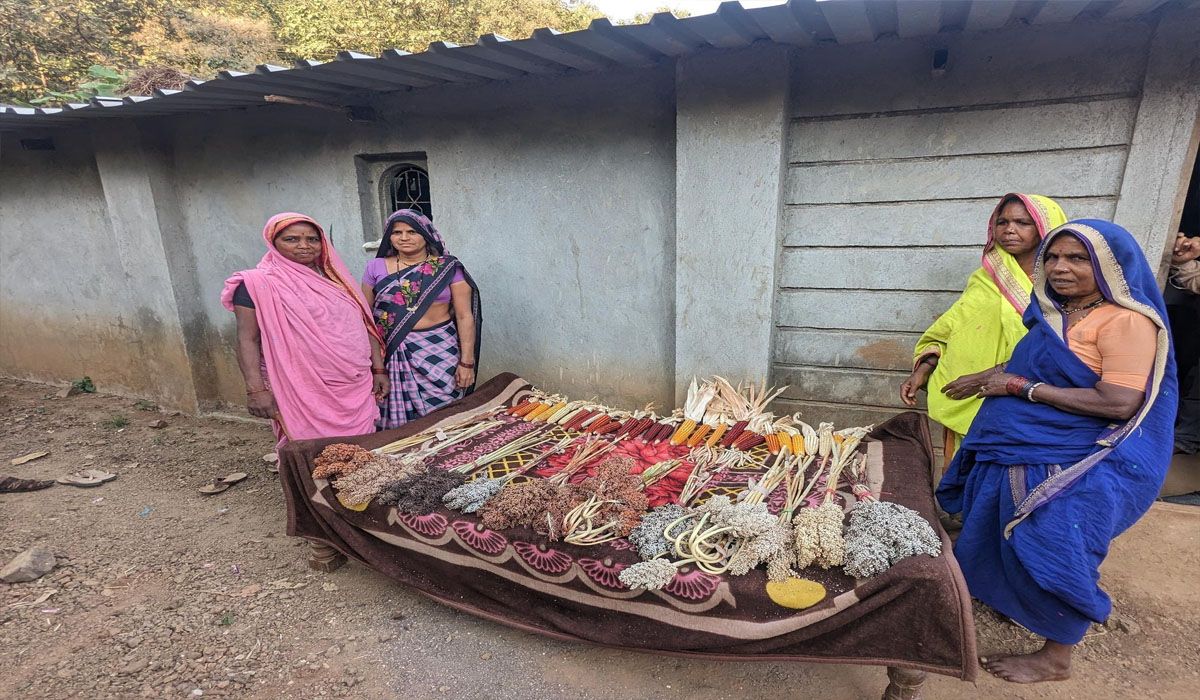
The Centre for Science and Environment (CSE) in New Delhi has emphasised the urgent need for government support to community seed banks to safeguard India’s food security in the face of climate challenges.
This call was made during the launch of a new report in the national capital on May 22, coinciding with the International Day for Biological Diversity, a day dedicated to celebrating the vital role of ‘seed savers’ and community seed banks across the country. At the event, speakers underscored the importance of formally recognising the farmers and communities who work tirelessly to conserve traditional seed varieties.
G Krishna Prasad, founder of Sahaja Samrudha, an organic farmer collective based in Karnataka, stressed that sustaining the enthusiasm of seed savers requires not just recognition but also incentives. Without adequate appreciation and tangible value for their knowledge and labour, community participation risks dwindling.
He suggested that these custodians of biodiversity should receive official certification, public acknowledgement, and inclusion in national strategies related to seed and biodiversity conservation. Echoing this sentiment, Vijay Jardhari, founder of the Beej Bachao Andolan from Uttarakhand, explained that community seed banks are about much more than just saving seeds. They represent a crucial effort to preserve culture, nutrition, and self-reliance.
He described a farmer’s personal seed bank, known locally as the ‘bijunda,’ as an essential safeguard against hunger, inflation, and climate uncertainties—one that deserves formal recognition and strong support. also highlighted the need for better integration between government institutions and local seed savers.
He proposed that the National Bureau of Plant Genetic Resources (NBPGR) should open its genebank resources to farmers, facilitating seed exchange and fostering community-led conservation efforts. He emphasised that government funding and policy support are vital to sustaining these initiatives. Community seed banks operate as decentralised grassroots organisations managed by local farmers, self-help groups, women’s collectives, and nonprofits.
Their central mission is to preserve indigenous and climate-resilient seeds along with the traditional knowledge surrounding their cultivation and use. According to Vibha Varshney, head of CSE’s Biodiversity and Food team, an online survey conducted with NGOs, community seed banks, and individuals from 15 states revealed that these banks have robust systems in place for seed collection, preservation, and distribution—a system that has withstood the test of time despite increasing climate unpredictability.
The survey found that community seed banks collectively safeguard more than 887 varieties of climate-resilient seeds spanning 71 different crops. However, Shimali Chauhan, co-author of the report and part of CSE’s Food and Biodiversity team, pointed out that the actual number is likely much higher, as many seed banks lack proper documentation of their collections.
Despite their importance, community seed banks face significant challenges. Funding shortages, inadequate infrastructure, and a lack of supportive policies threaten their sustainability.
There is also a worrying shift in attitudes, especially among younger farmers who often view traditional seeds as outdated, favoring hybrid or genetically modified seeds that promise quicker yields and greater profits. Furthermore, climate change adds another layer of risk, affecting seed production and storage conditions. Varshney highlighted that the future of these seed banks hinges on government support, active community engagement, and access to financial and technical resources—areas where support remains scarce.
Bharat Mansata, founder of Vanvadi, a forest regeneration collective in Maharashtra, called on the government to recognize the immense genetic wealth embodied in these seed banks and to protect this genetic commons from exploitation by large commercial interests, ensuring it remains accessible to small farmers.
